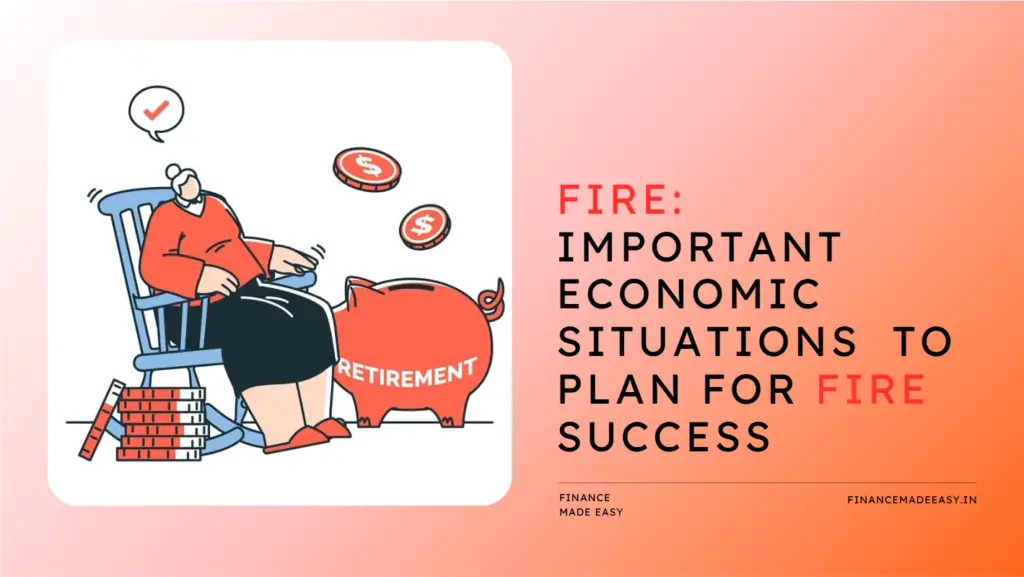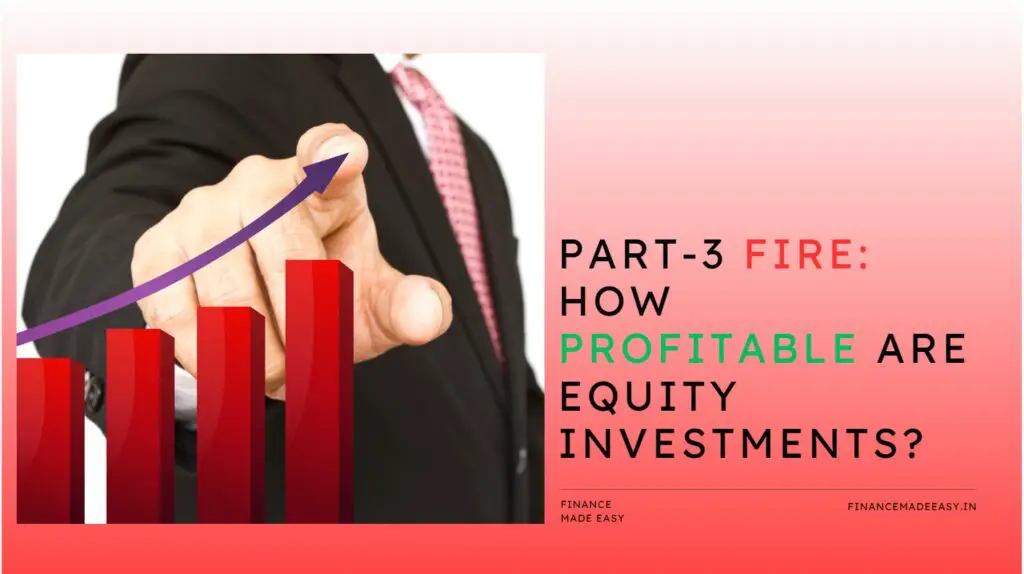Sharing is caring!
Table of Contents
ToggleIntroduction to Fire Planning:
In our previous blog, we talked about the situation where we stand at in terms of traditional retirement and how is it changing across globe. We saw that the concept of retirement is no longer what it used to be. In fact, we are living in a time where retirement is almost not real, and many of us are being expected to work for much longer than we expected.
At the same time, a lot of young people, especially Gen Z, are dreaming of early retirement—or what they call FIRE (Financial Independence, Retire Early)—for different reasons. But this idea seems to go against the current economic situation we’re all living in, right? So, the question is: Is early retirement just a dream, or can it really be done?
In this blog, I would like to talk about two of the challenges that I feel we could face that our older generation have not.
1. Longer Retirement Duration with shorter work life
When you retire at 60s, you have a life of around 20 to 25 years to live. Of course, the life expectancy depends on various factors like region, education and employment.
| Factor | National Life Expectancy | Region-wise | Education-wise | Job-wise |
|---|---|---|---|---|
| India | 67 years (2022) | Urban: 70-75 Rural: 60-65 |
Higher Ed: 75-80 Lower Ed: 60-65 |
High-income: 70-80 Low-income: 60-65 |
| USA | 79 years (2022) | Urban: 80-85 Rural: 75-78 |
Higher Ed: 85+ Lower Ed: 70-75 |
High-income: 80-85 Low-income: 70-75 |
| China | 77 years | Urban: 78-80 Rural: 72-74 |
Higher Ed: 80-82 Lower Ed: 74-76 |
High-income: 78-80 Low-income: 72-75 |
| Brazil | 77 years | Urban: 78-80 Rural: 70-73 |
Higher Ed: 80-82 Lower Ed: 70-74 |
High-income: 78-80 Low-income: 70-73 |
| Japan | 84 years | Urban: 85+ Rural: 82-83 |
Higher Ed: 86+ Lower Ed: 75-77 |
High-income: 85+ Low-income: 82-84 |
| Germany | 81 years | Urban: 84-86 Rural: 78-80 |
Higher Ed: 85+ Lower Ed: 75-78 |
High-income: 85+ Low-income: 75-80 |
| UK | 81 years | Urban: 85+ Rural: 75-78 |
Higher Ed: 85+ Lower Ed: 75-78 |
High-income: 85+ Low-income: 75-78 |
| Canada | 82 years | Urban: 83-85 Rural: 80-82 |
Higher Ed: 85+ Lower Ed: 75-80 |
High-income: 85+ Low-income: 80-82 |
| Australia | 83 years | Urban: 85+ Rural: 80-82 |
Higher Ed: 85+ Lower Ed: 75-77 |
High-income: 85+ Low-income: 80-83 |
| France | 82 years | Urban: 83-85 Rural: 75-78 |
Higher Ed: 85+ Lower Ed: 75-77 |
High-income: 85+ Low-income: 78-80 |
| Mexico | 77 years | Urban: 78-80 Rural: 70-72 |
Higher Ed: 80-82 Lower Ed: 70-74 |
High-income: 77-80 Low-income: 70-75 |
| South Korea | 83 years | Urban: 84-85 Rural: 80-82 |
Higher Ed: 85+ Lower Ed: 75-78 |
High-income: 85+ Low-income: 78-80 |
If the retirement is planned properly, survival of this 20 to 25 years post-retirement is not a difficult job.
As Gen-Z, we are looking at early retirement, we are simply stretching our retirement life to 40 years or more.
That doesn’t make any sense for me. What do we do during retirement life?
For Example, for an individual, who starts working at age of 23, and planning early retirement at age 40(very popularized number in FIRE Community), he needs to fund his survival for 40 years of retirement life with the savings and investments done during his 17 years of work life.
How does the math add up here? The math is not matching here [Laugh Emoji]
2. The Adulting Checklist: Still Missing a Few Boxes - Unfinished Business (Education, Marriage, House Purchase)
As a human, starting a family of our own comes with set of responsibilities. No one can just simply run away from those responsibilities.
Traditionally, when people used to retire at 60, by that time, they would have funded their children education, and Marriage, also may be constructed or purchased a house for their living along with handsome retirement corpus too.
With the target of early retirement in your 40s, funding long retirement itself is challenging task to do, and do you feel you can just complete your responsibilities? Your retirement corpus may not be able to accommodate these events.
To fuel your anxiety, Indias are now prioritizing their career over their marriages resulting delayed children and by your 40s you have a kid whom you need to fund for his schooling till graduation. Its really unpredictable with the rising inflation for Education.
Redefining Adulting: The Rise of DINKs and Beyond
May be just to run away from traditional responsibilities this new generation are starting new trends like DINK(Double Income No Kids), and even running away from marriage system completely and showing interest to opt for a lifestyle free from these societal pressures.
And, this social media is glamorizing and normalizing these trends in many ways with terms “Freedom”, “independence”, “the joy of living life on your own terms”, and support themselves with the social media postings from influencers.
I strongly believe without these social medias the new culture would not have gained such acceptance.
And the irony is many of these influencers – those who are shaping new cultural narrative—are just regular people like you and me.
They are not experts, nor do they have the depth of experience or wisdom to fully understand the long-term consequences of what they promote. Still, somehow, their opinions gain mass followings, and their personal choices are celebrated as they represent a universal truth.
Isn’t this prioritizing self-pleasures culture rueing the cultural values we all came from and starting their new culture and passing to next generations?
Coming back to our topic, if you want to be successful with your FIRE achievement, you should also plan for your depends financially on top of your retirement corpus with shorter work life.
Conclusion:
All the information shared is for educational purposes only. The blog Finance Made Easy(financemadeeasy.in) and the author is not responsible for your financial decisions.
To read more on FIRE please click here for part 1
To read more on FIRE please click here for part 3
Sharing is caring!
Related Posts
2 thoughts on “FIRE Planning: Tackling Critical Challenges – Part 2”
Comments are closed.


Pingback: PART-3 FIRE: How Profitable Are Equity Investments?
Pingback: Part 4 - Important Questions on FIRE - Finance Made Easy